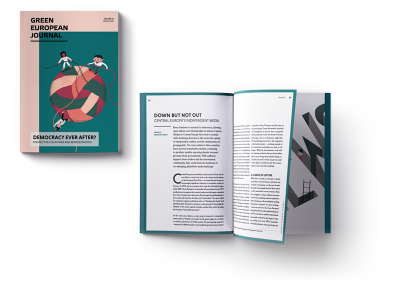This article is part of a panorama in which eight analysts from around Europe look at how referendums are used or misused, and how they shape public debate. The series explores the role of referendums throughout Europe: how they drive change, whether progressive or reactionary, and foster common understandings crucial for functioning democracies.
Since 2003, Malta has held three referendums. In March 2003, citizens voted on EU membership, in May 2011 on divorce, and a referendum on spring hunting was held in April 2015. All three referendums shared the common themes of national pride, identity, and sovereignty. National sovereignty holds special significance in the postcolonial state.
The split between for and against was rather narrow in each case, reflecting Malta’s socio-political duopoly. The bipartisan landscape that emerged in the colonial era persists today. Two major forces – the Labour Party (PL) and the Nationalist Party (PN) – dominate public life. Both embrace economic liberalism; the PN, however, remains more conservative on reproductive rights, not least due to ties to the Catholic Church. Both parties maintain clientelistic networks that cut across social classes: patronage offers a stable source of income in exchange for loyalty. Voters therefore often simply align with their party’s stance rather than voting on the matter at hand per se.
The bipartisan landscape that emerged in the colonial era persists today.
Malta’s EU membership referendum saw the highest turnout (almost 91 per cent) and the lowest support for joining (54 per cent in favour) of the nine countries that voted on accession in 2003. Both the “yes” and “no” campaigns emphasised national interests. The governing PN argued that accession would boost tourism, while Malta’s infrastructure would gain from EU funds. The Labour opposition cautioned against membership, suggesting it would undermine Malta’s independence and neutrality.
In 2011, Malta was one of only three countries worldwide that did not permit divorce. Since legalising divorce did not feature in the PN’s electoral manifesto, the initiative came from MPs. Two parliamentarians, one from each party, presented a joint private members’ bill and the referendum was authorised through a separate resolution. Asked whether married couples, separated or living apart for at least four years, could divorce, 53.2 per cent of voters said “yes”.

The campaign against divorce was supported by the PN, with then Prime Minister Lawrence Gonzi casting a vote against the bill. The campaign Kristu iva, Divorzju le (Yes to Christ, No to Divorce) – heavily promoted by the Church – affirmed that one “could not be a true Catholic” while backing a law clashing with “the clear teachings of Christ”. The result attested to the Church’s weakening influence on social life. National identity was becoming more secular.
The 2015 referendum on the spring hunting of turtle dove and quail was initiated by the Green Party, Alternattiva Demokratika, alongside several environmental NGOs. A petition, signed by 45,000 people, called for a ban. While in previous referendums, those supporting change had successfully campaigned on a “yes” platform, the formulation of the 2015 referendum question obliged those wishing to change the law to lead a “no” campaign.
The referendums were landmarks in the ongoing debate between two camps loosely definable as “Eurocentric” and “authentic”.
The hunting debate transcended conservation, becoming “an emotionally-charged moment where a ‘nation’ chooses which values it wants to be seen as having.” The anti-hunting lobby sought to assert Malta’s will to do away with such antics for the sake of EU integration, while to the thousands who voted in favour, being the only EU country to allow recreational spring hunting was a matter of national pride.
The referendums were landmarks in the ongoing debate between two camps loosely definable as “Eurocentric” and “authentic”. The former, represented by the urban middle class and civil society groups, campaigns to bring Maltese legislation in line with the rest of Europe’s liberal democracies. The latter, encouraged by the governing PL, stirs pride in an authentic national identity, arguing that further integration is unnecessary since Malta is already “the best in Europe”.
As the hunting referendum proved, calls to safeguard national traditions from supposed foreign pressure can yield mass support. To those in power, conspiracies of foreign interference come in handy. At a time when the government is under international scrutiny in relation to the murder of journalist and activist Daphne Caruana Galizia and corruption scandals, patriotic rhetoric is an effective tool for retaining the electorate’s trust.

